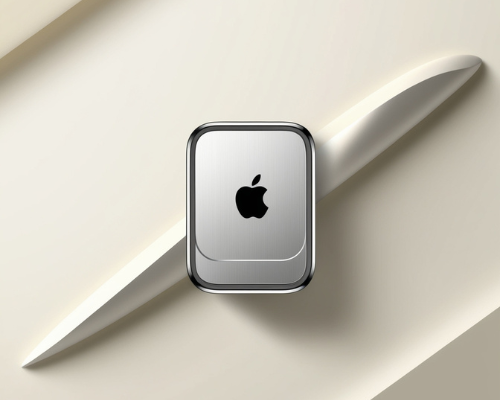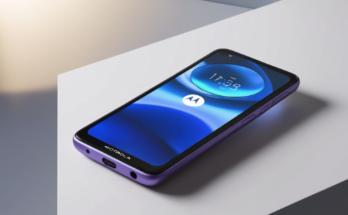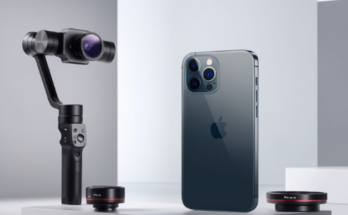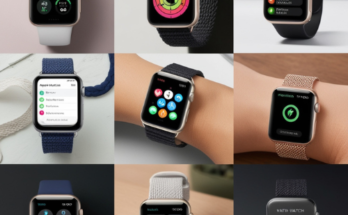Why iPhone Users Are Loyal to the Brand: The Psychological Connection
When you ask Apple users why they prefer the iPhone over Android, you’ll probably hear something like this: “The iPhone has better software stability, it’s easy to use, the resale value is better, the warranty, the after-sales support, etc.” But these are the results of a successful business that sells a lot of products, which generate the revenue needed to expand globally, hire better engineers, offer better customer service, and so on. These answers reflect the reality right now, but 10 or 15 years ago, when the first iPhone came out, there was no history to prove that the iPhones had amazing resale value, Apple customer service had an amazing reputation, or iOS proved to be a stable OS over the years. So, these answers don’t reflect the reason behind the massive growth of Apple, but it reflects what the end user feels right now.
Apple’s Psychological Strategy: Building Connection Before Reputation
In my opinion, Apple was very intelligent to work on the psychological part and let the consumer love the iPhone before even knowing if Apple is a reputable company or not. And the number one reason, in my opinion, is how the iPhone communicates with you. Apple incorporates a lot of factors to make the experience more joyful and humane, and that’s what really matters for most people. Let me explain.
The Human Experience: iPhone’s First Interaction
From the very first moment you interact with your brand new iPhone, it treats you like a human. Look at the initial setup screen: The iPhone animates the word “hello” in all languages over a nice-looking background, which gives you a great first impression, especially if you are already excited about your new phone. On the other hand, the first thing you see on your brand new Android is “What’s your language?” Then you go through the face ID setup. So listen to this: It makes this engaging sound effect as if you are in a Sci-Fi movie scanning your face, not to mention the great animation that happens while doing this. I’m sure it will make you smile at least if it’s your first time to own an iPhone. Look at Android’s way, in comparison: It’s very hollow and empty, without any connection with the user. Yes, it’s straight to the point and functional, but you are not dealing with robots; you are dealing with humans.
The Emotional Connection: How iPhone’s Design Makes You Feel Special
Finishing the setup process alone builds some sort of connection between you and the iPhone, before even knowing what features it has or what it can or cannot do. If I’m not a tech person who knows the capabilities of each phone, or in other words, an average consumer, I will immediately feel that this phone is more premium and I will enjoy it more. But this is just the initial setup.
Apple’s Attention to Detail: The Sound Experience
Apple also gives a lot of attention to the sounds. If you don’t know which phone I’m holding, but once I plug in the charger, you hear this sound, you will immediately tell it’s an iPhone. Can you tell me what’s the charging sound of your Android phone? I’ve been using Pixel phones for years, and I don’t know the charging sound off the top of my head because it’s not unique or iconic. And what about the keyboard sound? If you don’t know which phone I’m holding, the keyboard sound is enough to let you know that I’m typing on an iPhone. The list goes on. That’s why you hear these sound effects in every YouTube video, movie, or anything related to media. I think it has a psychological impact that iPhones are iconic, and if you own one, you are a special person. And the more you use it, the more you get attached.
The Unlocking and Animation Effects
Look at the unlocking animation in comparison to Android. Apple’s approach is very welcoming, and how the apps show on the screen makes you feel like unlocking your iPhone unlocks another world that has a lot of things to do. The juggle effect you get when you edit your home screen is playful and bouncy, which is a joy to look at. Even when you refresh your inbox in the Mail app, look at the effort exerted in the design to make the refresh gesture more pleasing, while in the Gmail app, it draws a circle for a few seconds. It might sound a bit emotional, and I personally don’t care that much, but a lot of people do care, and sometimes they don’t even know it. They just see something nice happening on the screen, they get used to it, and nothing else delivers the same experience. Combine all of this with the haptic feedback, which makes it even more engaging. Google gave a lot of attention to the haptics, and it’s miles ahead of before, but the haptic feedback alone won’t help in this case.
The Loyalty to iPhone: Does Smart Features Matter?
Now, let’s talk about the differences between iPhones and Androids in the smart features and if it makes any difference in the loyalty. I already know that a lot of the features Apple advertises are just trash based on my long history of comparisons with Android. For how many years has Apple said that Siri is much better this year, but it ends up being as useless as always? Apple’s intelligence cleanup feature is so basic, same as Android’s Magic Eraser that we got four years ago, but now we have Magic Editor that uses generative AI. So, the iPhone outcome is not great in comparison. What else? The writing tools: We’ve had these features for more than a year on Android, and we have even more, like Best Take that intelligently swaps faces, Reimagine that changes your entire photo to something else, and Add Me that solves one of the biggest issues we face in group shots. The list goes on.
The Power of Branding: Why iPhone Users Stay Loyal
But why does all of this not matter and Apple users are still loyal to the brand regardless? The point is, most people are not into tech, and all they really care about is the psychological connection Apple built over the years, which made the iPhone iconic. It gives the social status that most people look for, plus it feels and looks elegant. And what proves my point is when any of my friends who own an iPhone try to show me a photo they took some time ago, they do this: They keep scrolling endlessly until they find it, and when I show them that they can search for it, they look at me and say, “Wow, I didn’t know that.”
iPhone’s Social Status: The Lexus Comparison
And this is how Apple users copy things between apps, and this is me on Android. So, the point is, only a few people care about having the smartest features. I’m not saying that Google or Android OEMs should stop, but they also need to focus on branding, on how the phone interacts with the end user, how it animates, how it sounds. It should be fun, joyful, and welcoming. It’s a matter of a psychological connection, which makes them feel special and different. And even if the iPhone gives less, they’re going to pay more to get these things. It’s the same as comparing a Land Cruiser to a Range Rover, even though the Land Cruiser is a better off-roader, but the Range Rover makes you look rich. It has an iconic design and it’s more expensive, so a lot of people will ignore the cheaper price and more reliability of the Land Cruiser to have a better social status, and that’s why Toyota created the Lexus brand. The car is about the same as the Land Cruiser, but with slightly better materials, looks sexier, and a higher price tag. So, it gives you the status, and that’s what people are looking for.
My Opinion
I hope this article delivers the message, and I’m curious to know what you think in the comments. Would you agree with me, or do you have a different opinion?



